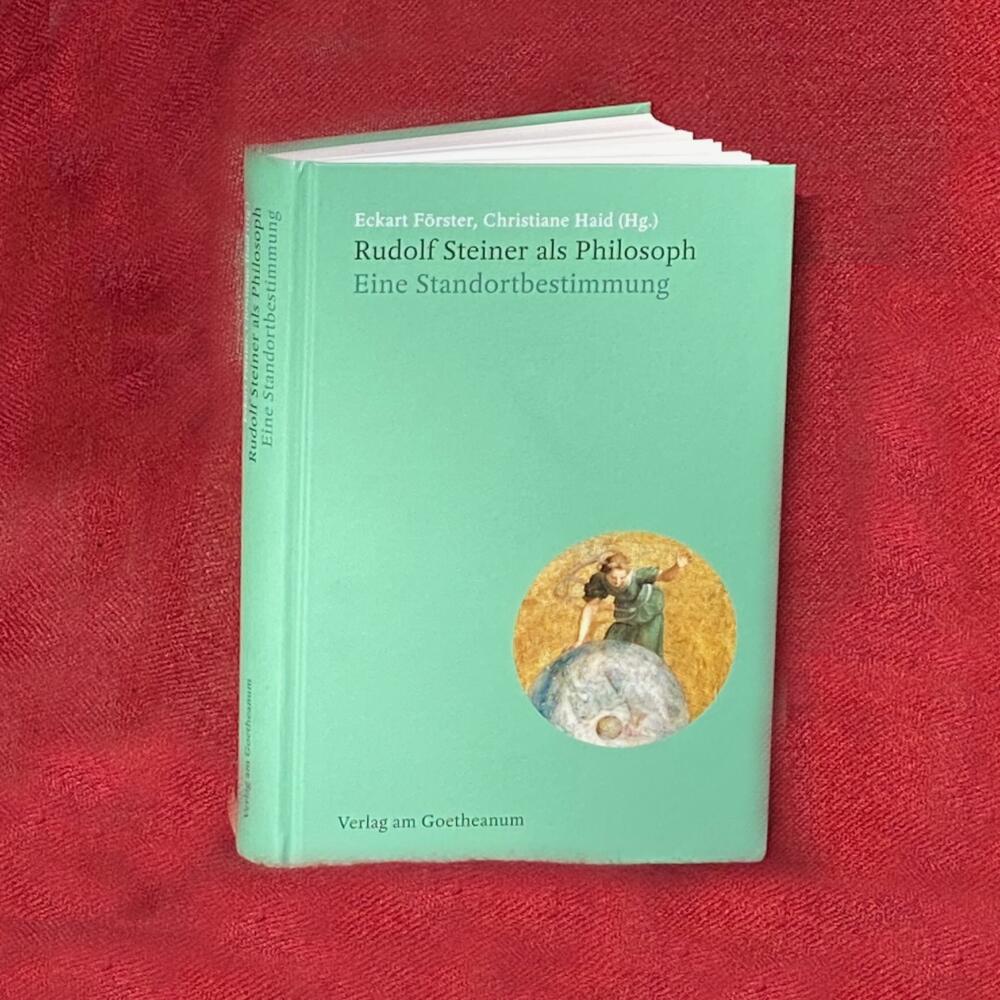A book presents Rudolf Steiner‘s original contributions to philosophy
Rudolf Steiner is known as the originator of Waldorf Education, biodynamic agriculture and Anthroposophic Medicine. In his dissertation and other written works he also developed a philosophy based on the reality and spiritual activity of the human ‘I’.
Eckart Förster, co-editor of the book on Rudolf Steiner as a philosopher (‘Rudolf Steiner als Philosoph’) writes, “It seems to be generally assumed that [Rudolf] Steiner had nothing to contribute to philosophy”. Eckart Förster explains how the understanding of philosophy has changed since Rudolf Steiner‘s time. Six philosophers cast light on Steiner‘s contributions to philosophy and why they continue to be relevant and worth discussing today.
Renatus Ziegler interprets Rudolf Steiner‘s reception of the medieval problem of universals as an extension towards a science of experienced thinking, leading from pure thinking “to the conscious perception and cognition of concrete, spiritually effective events, processes and beings that are accompanied by this thinking.” This is linked to a view of the human being as “an individuality able to unfold its potential into the future.” According to Klaus Fergesheimer, Rudolf Steiner differs from Immanuel Kant and Johann Gottlieb Fichte in that he emphasizes the productive side of human thinking, starting with the postulate that “the I posits cognition” and that truth is formed out of the human spirit: “This product is free because what is given cannot force (determine) us to know it.” Johanna Hueck also pursues Rudolf Steiner‘s path ‚from a contemplating (reflecting) to an experiential (imaginative) form of cognition that has changed the course of philosophy. Thinking is experienced “imaginatively as an essential inner activity” and this can “strictly speaking no longer be called philosophy”. It had become an experiential and experimental science of the mind with “instructions on how to execute this experience.”
Christian Tewes explores Rudolf Steiner‘s approach to thinking on the basis of the latter‘s books ‘Truth and Science’, ‘Goethe‘s Theory of Knowledge’ and ‘The Philosophy of Freedom’ and links them to examples of today‘s Cognitive Phenomenology. According to Christian Tewes, Rudolf Steiner made an important contribution to philosophy by distinguishing the state of exception (observation of thinking) and intuitive thinking. This distinction, Christian Tewes points out, is important to Cognitive Phenomenology from “both a purely systematic and a concrete point of view”.
Andreas Luckner explains that Rudolf Steiner‘s ethical individualism can be read as a continuation of virtue ethics, an original ethics of authenticity, under the conditions of the modern individual who is striving for autonomy. In another contribution he elaborates on how Rudolf Steiner described the danger of losing humanity (due to sub-nature) before Martin Heidegger‘s philosophy of technology, and how he proposed to counteract this danger by developing higher spiritual faculties (super-nature) through art and spiritual science.
Jaap Sijmons points out that, unlike Wilhelm Dilthey, Rudolf Steiner described twelve different views of the world and of reality that are equally important and together form a whole.
According to Eckart Förster the book‘s intention is not to justify Rudolf Steiner but to provide inspiration on how one can “use philosophy to exceed philosophy, motivated by the assumption that this may be of philosophical interest.”
English by Margot M. Saar
Book (in German) Eckart Förster, Christiane Haid (editors): Rudolf Steiner als Philosoph. Eine Standortbestimmung, Verlag am Goetheanum, 352 pages, CHF 54.90
Cover image Cover of the book ‘Rudolf Steiner als Philosoph‘, published by Verlag am Goetheanum, using a detail from Raphael's ceiling fresco in the Palazzi Pontifici (copyright: bpk | scala)

